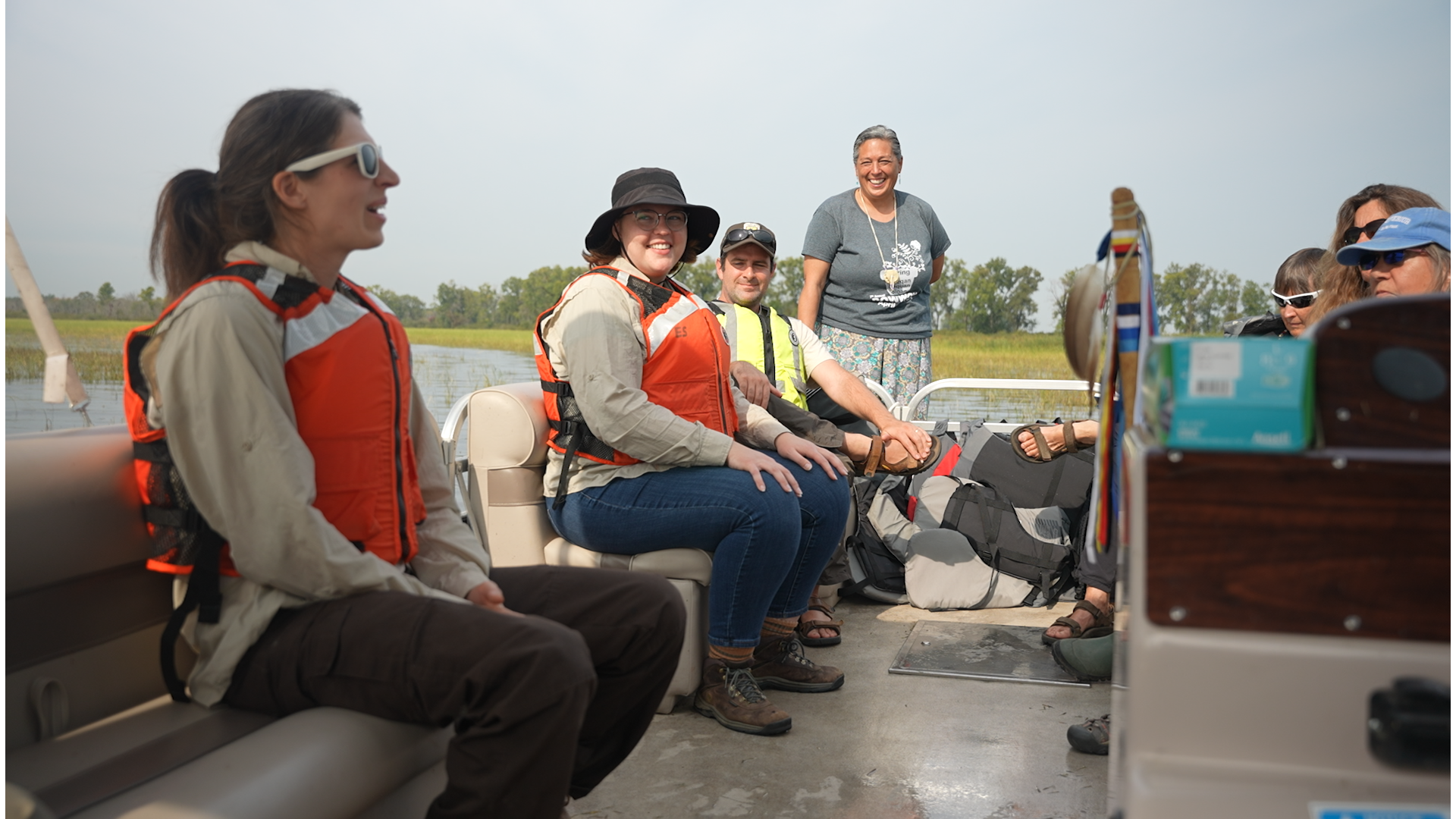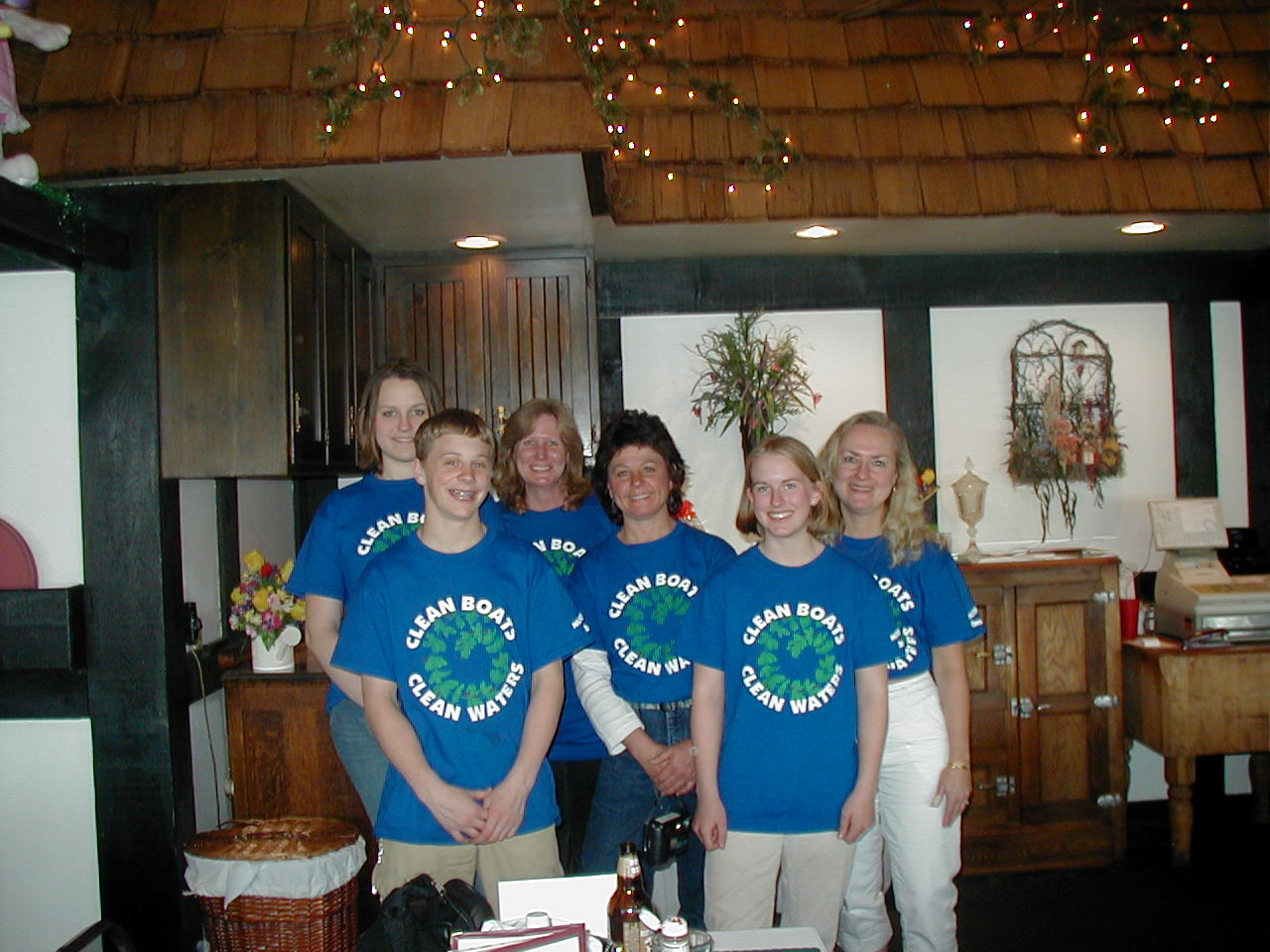Growing up in Milwaukee, Cristal Sanchez-Estrada enjoyed the vibrant urban beaches that hug the shores of Lake Michigan. As a busy high-schooler at Pius XI, she didn’t get to those stretches of sand and water as often as she may have liked.
Now, as a busy undergraduate majoring in biological sciences, she is intimately connected with the lake in a way she couldn’t have envisioned before this summer. She is a scholar in the Ronald E. McNair Postbaccaulareate Achievement Program—which offers undergraduate support to underrepresented students, fostering a path to advanced degrees—and has had a crash course in species-specific chemical content analysis in the lab of Russell Cuhel and Carmen Aguilar at the School of Freshwater Sciences, University of Wisconsin-Milwaukee.
“I’m very fortunate to have been working with them. They’ve been mentoring me. I’ve been working with them for two months. I love it,” Sanchez-Estrada said. “This summer’s research experience is opening my doors.”
She has gone through one door and found pipettes and a spectrophotometer. She has gone through another and learned skills to sample in Lake Michigan, even in four-foot waves, and disciplined notetaking to document lake conditions. “At first, it was really different. Now, I feel a part of the team. It feels really good to be a part of the research team,” Sanchez-Estrada said.
She also feels good to be the 2016 recipient of the Carl J. Weston Scholarship. The Weston scholarship, established in 1995, is awarded to undergraduate students who are involved in a Wisconsin Sea Grant-supported project.
The Sea Grant project in this instance involves conducting a molecular genetic analysis of Lake Michigan’s zooplankton community structure. The small organisms are near the bottom of the food chain in a lake that has seen plunging forage fish populations, mostly due to the invasion of Dreissnid mussels. The project will construct a genetic sequence library of commonly occurring zooplankton; establish the validity of preservation techniques for the genetic material; attempt molecular analysis of the species composition, richness and diversity; and compare historical zooplankton data to current conditions to learn more about abundance and community structure. Cuhel and Aguilar are the investigators, along with Rebecca Klaper, also with UW-Milwaukee.
Sanchez-Estrada started out at the University of Wisconsin-Madison where she gravitated toward the subjects she’s long appreciated—math and science. As a relatively recent transfer to UW-Milwaukee, Sanchez-Estrada stuck with those fields, “I have really grown in my time at UW-Milwaukee.” She continued, “I know now I want to continue in my education.” She hopes to pursue her STEM studies, possibly all the way to a doctorate.
That’s a milestone for her family, who she terms as “very proud of her.” She’s the first in her family, which includes her parents, two younger sisters and an extended group of relatives, to attend college.
Sanchez-Estrada said she’s also provided inspiration for her younger siblings. “College is all new to us. When I went to college, I couldn’t ask my parents for advice. Now, it’s nice to know I’ll be there for my sister when she has questions about FAFSA and college applications.”
“Cristal is maturing into the continuum of professional development from an inexperienced but supportive environment,” said Cuhel, a senior scientist at UW-Milwaukee’s School of Freshwater Sciences. “Her placement in a very active laboratory with immense peer support and role model availability has propelled her into a track leading to rigorous environmental, aquatic scientific research. It is an area where more Latinx students and professionals need to be visible, and Cristal is likely to help in that regard. Sea Grant is already playing a role in her development.”
“The (Weston) scholarship,” Sanchez-Estrada said, “is very meaningful to me. It’s the first scholarship I have ever received.”
Plus, this winner’s goals are very much aligned with the goals of the Weston family when the award was first conceptualized: to open doors for young people who want to pursue Great Lakes exploration and research.





